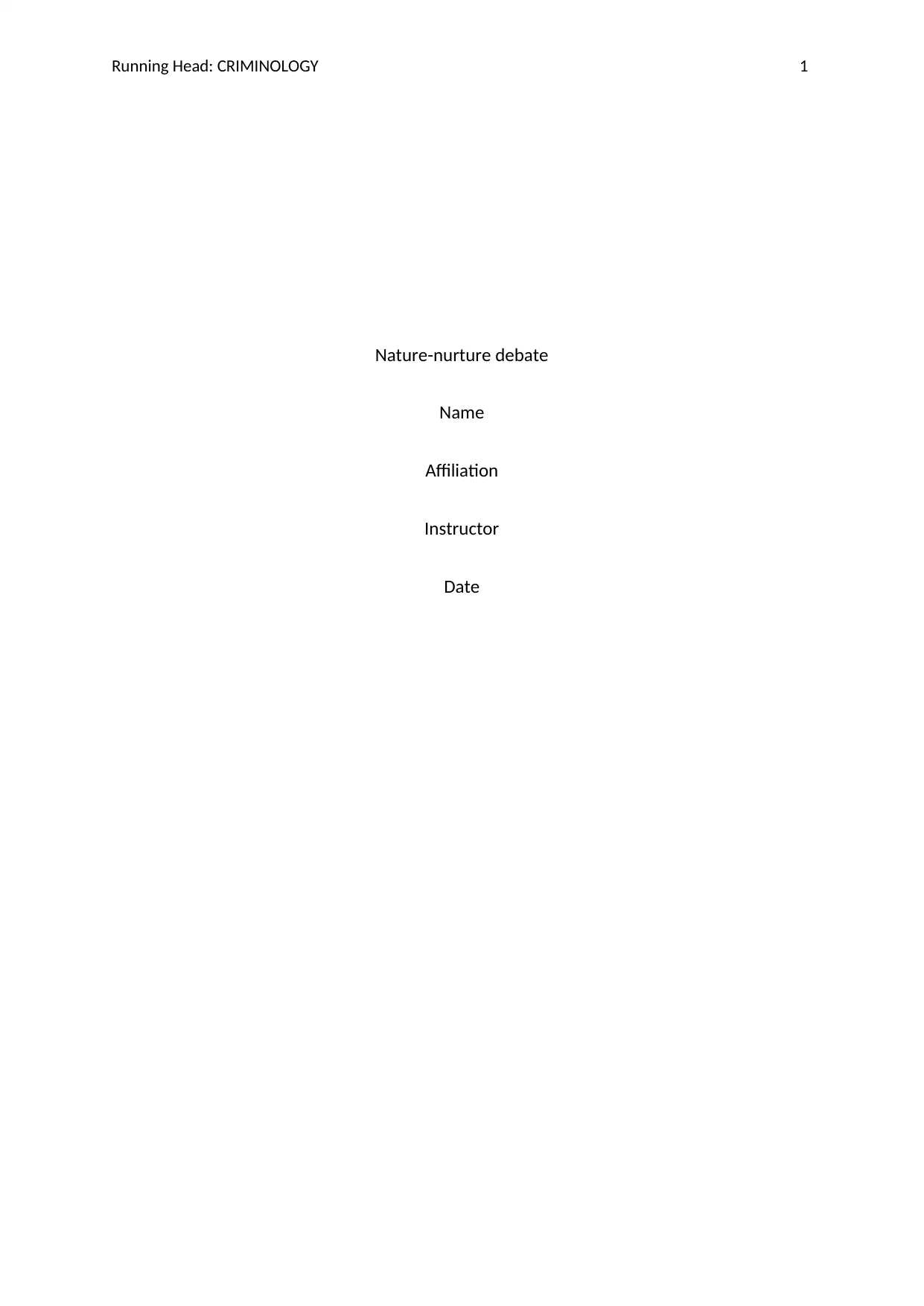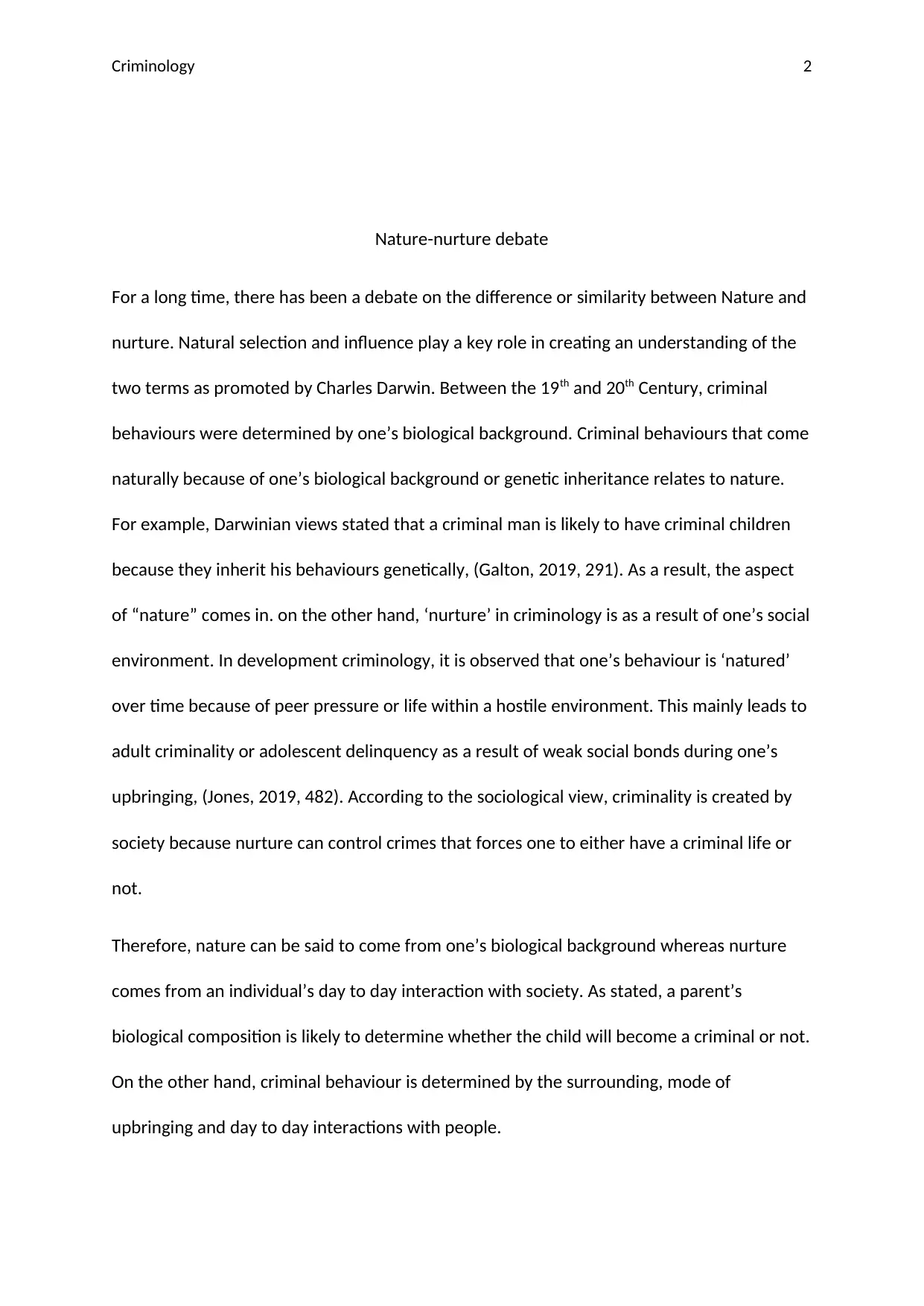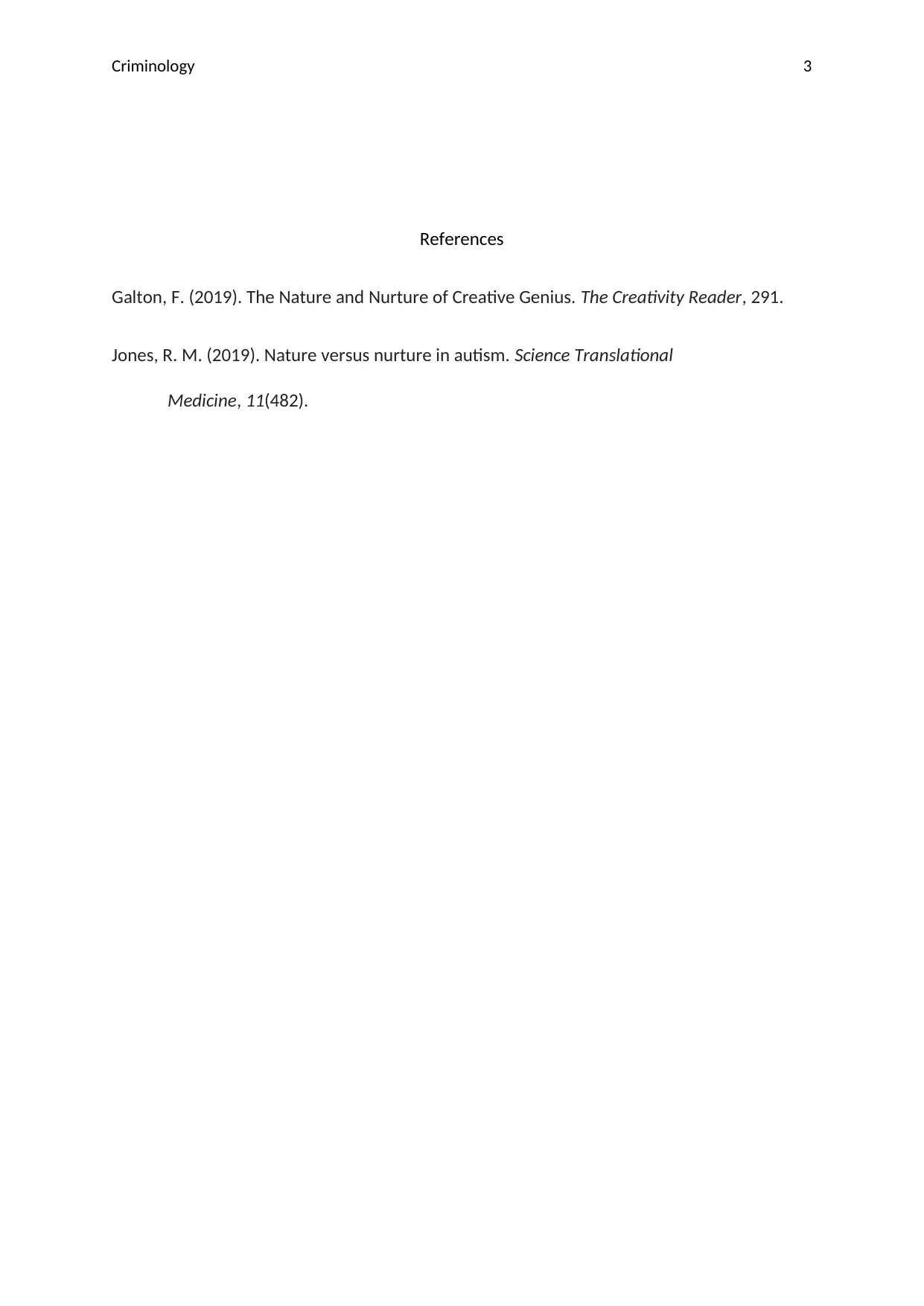Criminology: Nature vs. Nurture - Assignment on Biology and Society
VerifiedAdded on 2022/10/10
|3
|367
|15
Homework Assignment
AI Summary
This assignment delves into the ongoing debate of nature versus nurture in criminology, examining the influence of both biological and environmental factors on criminal behavior. The paper explores how Charles Darwin's theories have shaped perspectives on criminal tendencies, highlighting the role of genetics and inheritance, as well as the impact of social environments, upbringing, and peer influence. It contrasts the biological viewpoints, which suggest that criminal behavior can be inherited, with sociological perspectives, which emphasize the role of societal influences in shaping individuals' actions. The assignment references key studies, such as Galton's work on creative genius and Jones' research on autism, to illustrate the complexities of this debate and the interplay between nature and nurture in determining criminal behavior. The assignment concludes by summarizing the contrasting viewpoints, emphasizing how both biological background and day-to-day interactions with society contribute to the understanding of criminal behavior.
1 out of 3




![[object Object]](/_next/static/media/star-bottom.7253800d.svg)